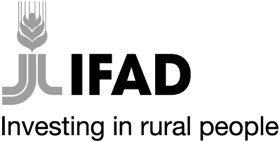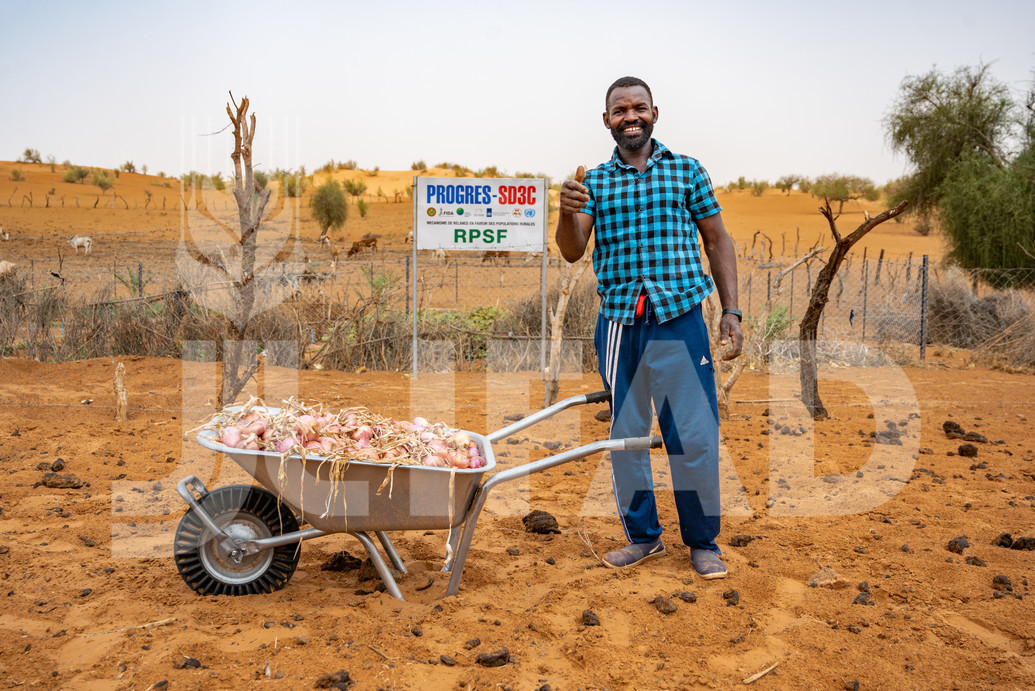| ID: | 76787 |
|---|---|
| Country: | Mauritania |
| Title: | Mauritania - Rural Poor Stimulus Facility (RPSF) - June 2022 |
| Description: |
Sidi Ould Ahmed Jeddou farms together with his family in the small village of Awje Mewssae in the Kankossa Municipality in Essaba, in southwestern Mauritania near the border with Mali. Before the arrival of IFAD’s Rural Poor Stimulus Facility project (RPSF) implemented through the Sustainable Management of Natural Resources, Communal Equipment and the Organization of Rural Producers Project (PROGRES), Sidi and his family had a host of problems, including the lack of irrigation water and good seeds. They also had no fencing to protect their garden from animals that destroyed their crops. They also lacked the proper tools they needed to work with. “Before RPSF came here, no one had ever offered us any help. We used to do our farm work with our bare hands, stopping in March because the summer sun made the soil too hot for our hands. Now we have proper tools.” The project also provided them with a solar power system and water pump, a water tank and hoses for irrigation, as well as fencing that allowed them to protect their gardens from foraging livestock. Now, with irrigation, they can produce throughout the year, not just in the winter rainy season as before. Even in the middle of June, during the hottest and driest part of the summer, their water tank is full, and their watermelons, carrots and onions are thriving. “Gardening and some livestock production is our only livelihood. Thanks to the support we received from the RPSF, our vegetable production has multiplied many times over. In the past we produced only 200 kilograms of vegetables per year. But this past winter alone, we produced enough to feed our family and donate vegetables to our poor neighbours before selling 2,3 tonnes of produce in the market. That helped me keep my livestock, which I used to be forced to sell to get money to buy food for my family. But this year, I supported my family with just my garden production.” Small-holder producers like Sidi encounter obstacles to their development, in particular climatic conditions or the lack of logistical means. IFAD’s Rural Poor Stimulus Facility (RPSF) helped reduce the impact of the COVID-19 pandemic on their farming activities and safeguarded their livelihoods, making sure that weaker groups like youth, women and persons with disabilities were included. The RPSF was implemented through the Sustainable Management of Natural Resources, Communal Equipment and the Organization of Rural Producers Project (PROGRES) during the height of the COVID-19 pandemic. It helped small-scale producers improve their agricultural productivity by ensuring quick access to inputs, such as certified climate-resilient seeds and farming equipment, that were impossible to get because of COVID-related lockdowns and movement restrictions. Before the pandemic, smallholders could farm only during the rainy winter period, September to February or March, then migrated to the capital Nouakchott, or even further to Senegal or Mali for the rest of the year. But COVID lockdowns brought travelling to a halt, resulting in an extraordinary loss of income. Additional funds granted through the RPSF supplemented the PROGRES project by providing solar panels, water towers, bigger pipes and other equipment that make it possible for them to irrigate and cultivate their vegetable crops throughout the year. Now they have doubled their farming season and are proud to show their production of onions, eggplant, carrots, watermelon and other produce even during the dry summer months. With the project’s support, community groups were formed to help organize market connections and transport. Acting in a group, farmers were in a stronger position when negotiating prices. They also learned how to produce their own high-quality seeds instead of buying them, which they will be using for the next cultivation season. This will help them to become more resilient against future shocks. |
| Size: | 14.00 MB; 6184 x 4128 pixels; 524 x 350 mm (print at 300 DPI); 1636 x 1092 mm (screen at 96 DPI); |
| Show more details: | Ibrahima Kebe Diallo |
| Copyright: | ©IFAD/Ibrahima Kebe Diallo |
| Categories: | New from West and Central Africa |
| URL: | ifad.org |

